- Written by solidarity

Cities across Europe are ready to welcome children from overcrowded refugee camps on the Greek islands. In a letter addressed to the presidents of the European Commission, European Council and European Parliament, they offer to take in unaccompanied children and provide better conditions for them.
"We need to help, and we are here to offer that help,” reads the letter. “Europe needs to step up to provide shelter, comfort and safety.”
The letter is signed by Amersfoort, Amsterdam, Arnhem, Barcelona, Ghent, Groningen, Leipzig, Nuremberg, Tilburg, and Utrecht which offer to relocate some of the roughly 5,500 unaccompanied children to their cities.
“We are ready to receive them! Each of our cities pledges to accommodate a fair share and abide by the principles of solidarity and responsibility as expressed through the EUROCITIES Solidarity Cities Initiative”, state the cities. “We are ready to work with the national and European authorities, to find the necessary relocation arrangements and realise accommodation solutions.”
EUROCITIES Solidarity Initiative
Within the framework of the Solidarity Cities Initiative launched in 2016, EUROCITIES has supported cities committed to solidarity in the field of refugee reception and integration. Abiding by the principles of humanity and responsibility, the members of this initiative are calling for cooperation among European cities to create more cohesive and inclusive societies.
- Written by solidarity
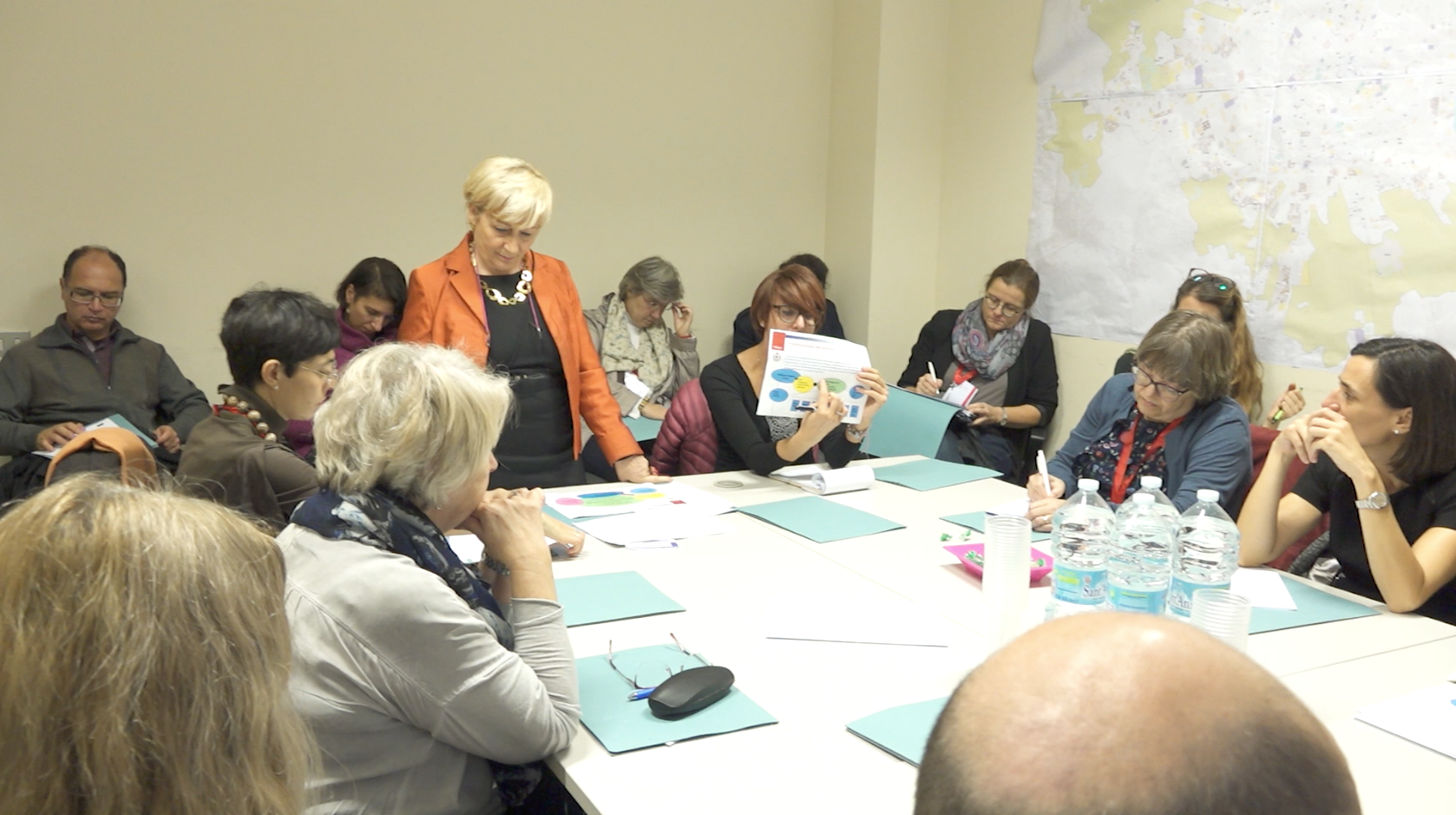
The video shows the study visit organised under EUROCITIES Solidarity Cities initiative. More than 40 city delegates from 23 cities of the Working Group on migration and integration and representatives from the European Commission and the OECD visited some key services of the reception and integration system for migrants and refugees in the city of Milan. After an introduction of the Solidarity Cities initiative, the video shows the services of two reception centres: the first reception centre 'Casa Chiaravalle', and the 'Casa Monlué' SPRAR (Protection System for Asylum Seekers and Refugees). The video also shows the services of the Centre for job orientation and placement (CELAV), run by the municipality of Milan. The video includes interviews to beneficiaries of these services and some data on the CELAV.
- Written by solidarity
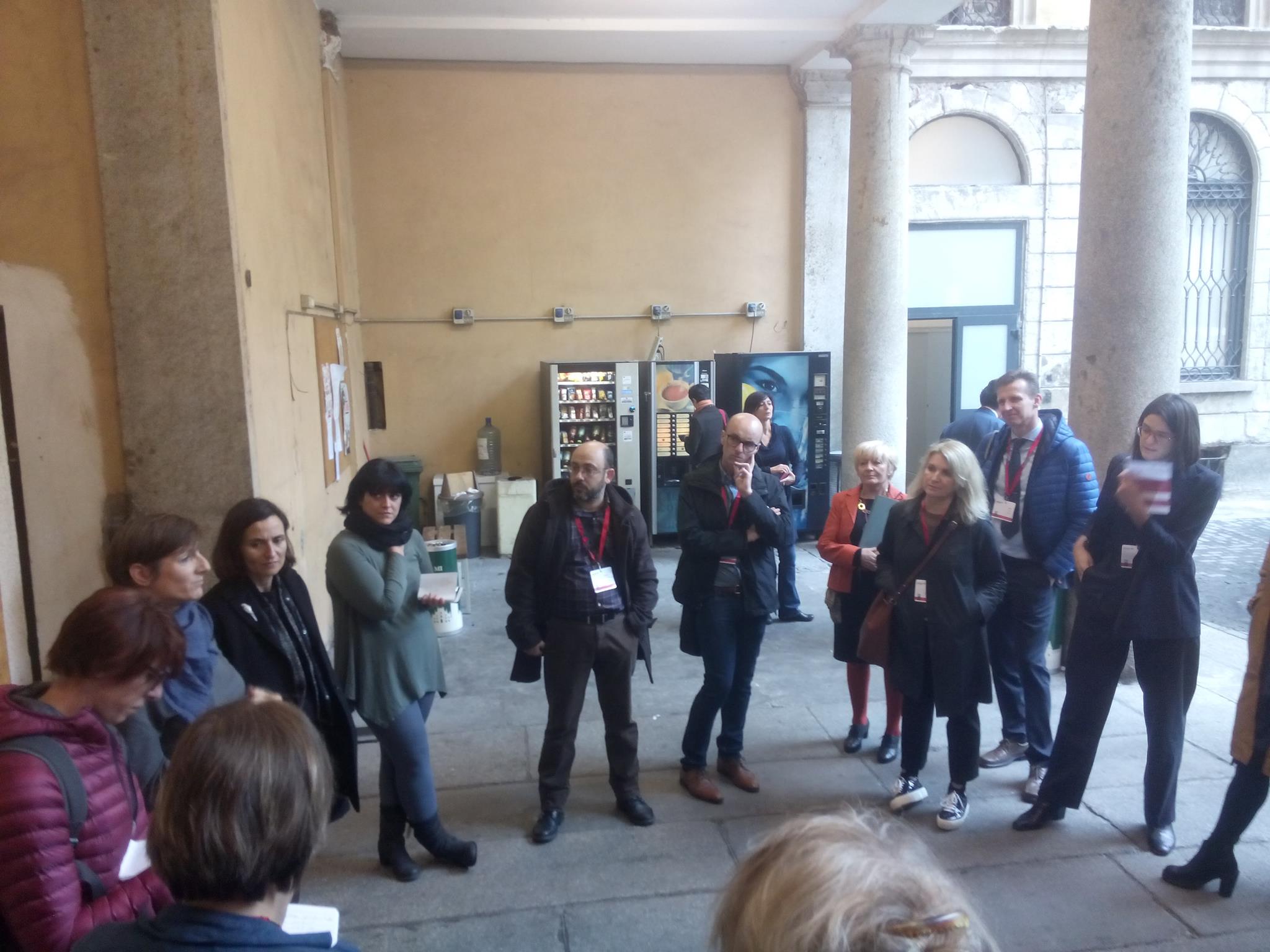
EUROCITIES’ members of the Working Group Migration and Integration and representatives from the European Commission and the OECD visited two key pillars of the reception and integration system of the city of Milan.
The field visits were organised on 8 November 2018, back to back with the Integrating Cities Conference VIII – Cities4People: Migrating ideas, inspiring integration and in the framework of the Solidarity Cities Initiative which Milan has joined. The visits aimed to show international participants the characteristics of the models of reception and early and long-term integration exist in Milan. Participants discussed with the city officers in charge of the different services and also talked directly with the migrants and refugees beneficiaries of the services. They provided their inputs and feedbacks during the day as well as on the day after, during a policy learning activity where other cities reflected on the potential transferability of some elements to their local context.
- Written by solidarity
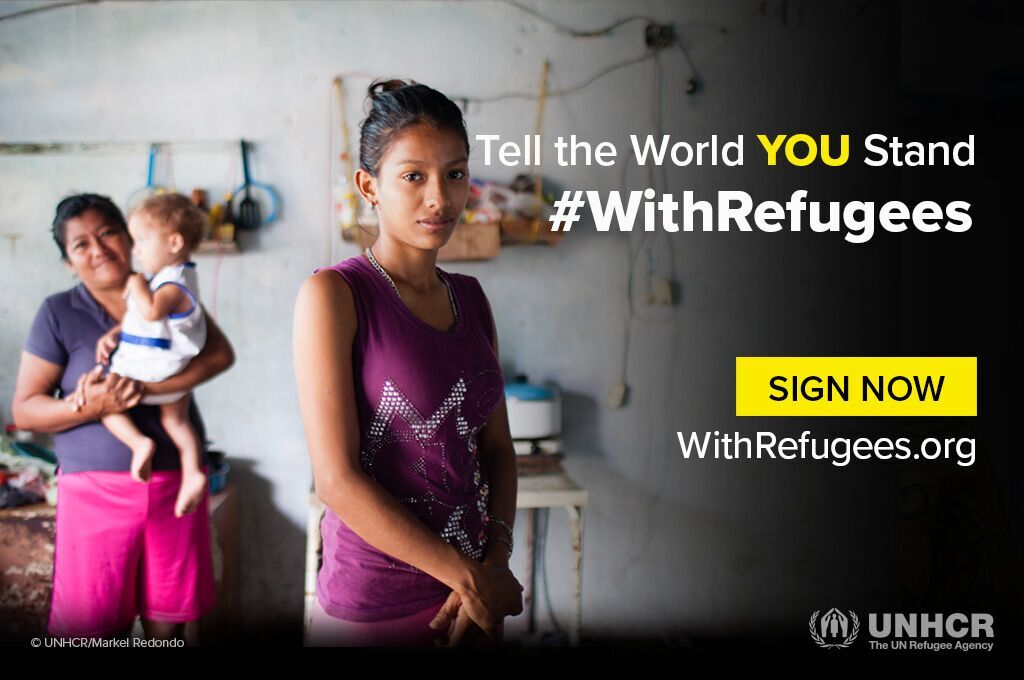
To mark World Refugee Day (June 20), mayors from more than 50 cities around the world are calling on all local authorities and municipalities to join them in welcoming and including refugees in their communities. The announcement follows the release yesterday (June 19) of new figures by UNHCR, the UN Refugee Agency that show a continuation of a five-year upward trend in the number of people displaced by conflict or persecution worldwide'.
In the face of ever higher levels of forced displacement - reflected in the still high number of arrivals of refugees in Europe – European cities, including Athens, Barcelona, Berlin, Braga, Brighton, Brussels, Ljubljana, Manchester, Nicosia, Sheffield, Turin, Vienna and Warsaw have joined together to show solidarity at this crucial time for people forced to flee.
"On this Word Refugee Day, the City of Nicosia embraces the «Journey of Solidarity». Today we stand for refugee rights, we stand in support of all those people who have been forced to flee their homes. We feel this is what humanity dictates but more so this is what our recent history demands, when not long ago we had to flee our homes. Cities face common challenges but working together can find answers towards a better future for all."
Constantinos Yiorkadjis, Mayor of Nicosia
The UN High Commissioner for Refugees, Filippo Grandi, praised the communities and individuals that are a positive force for inclusion:
“Cities #WithRefugees sends an important message of solidarity with refugees. With the majority of refugees now living in towns and cities, mayors and community leaders play a critical role in mobilising support, providing services and opportunities, and helping refugees become members of communities. As we work towards a Global Compact on Refugees, it is imperative to recognize and support of local communities to welcome refugees.”
The Cities #WithRefugees statement also highlights the increasingly important role cities have taken on in hosting refugees. Nearly two out of three refugees settle in urban areas whose residents are often the first to help them upon arrival.
Solidarity Cities, EUROCITIES’ initiative on the management of refugees in Europe, has joined UNHCR #WithRefugees initiative. Solidarity Cities promotes city-to-city capacity building and learning to improve policy on integration, and gets cities to commit to hosting refugees.
At the global level – UN member states have been developing a Global Compact on Refugees to transform the way the international community responds to refugee crises and secure more predictable and equitable support for refugees and the countries and communities which host them. Cities have a vital role to play.
The Cities #WithRefugees initiative is part of UNHCR’s ongoing #WithRefugees campaign, launched in 2016 to support the development of the global compact on refugees. To date the campaign has almost 2 million signatures to its core petition and approaching 19 million actions in support of refugees.
The mayors are encouraging other cities to join the global effort and sign on.
- Written by solidarity

“κανείς δε μένει χωρίς πατρίδα όσο θα υπάρχει η Θεσσαλονίκη”
“No one is left without a homeland as long as Thessaloniki exists" Nikiforos Choumno, 14th Century Byzantine Scholar
From 9-12 July, Thessaloniki hosted a delegation from Amsterdam and Zurich, as part of a mentoring visit organised by EUROCITIES and Migration Work. The mentoring visit focused on the city’s plan to create an overarching integration strategy and was prepared in the context of the Solidarity Cities Initiative with support from the Open Society Education Support Programme.
Thessaloniki, the second largest city in Greece, is home to thousands of refugees who were left stranded after the closure of the ‘Balkan Road’ in March 2016. Several camps were opened around the city but the city also has several accommodation programmes in flats and hotels, either managed by the city authority itself or NGOs and international organisations.
- Written by solidarity
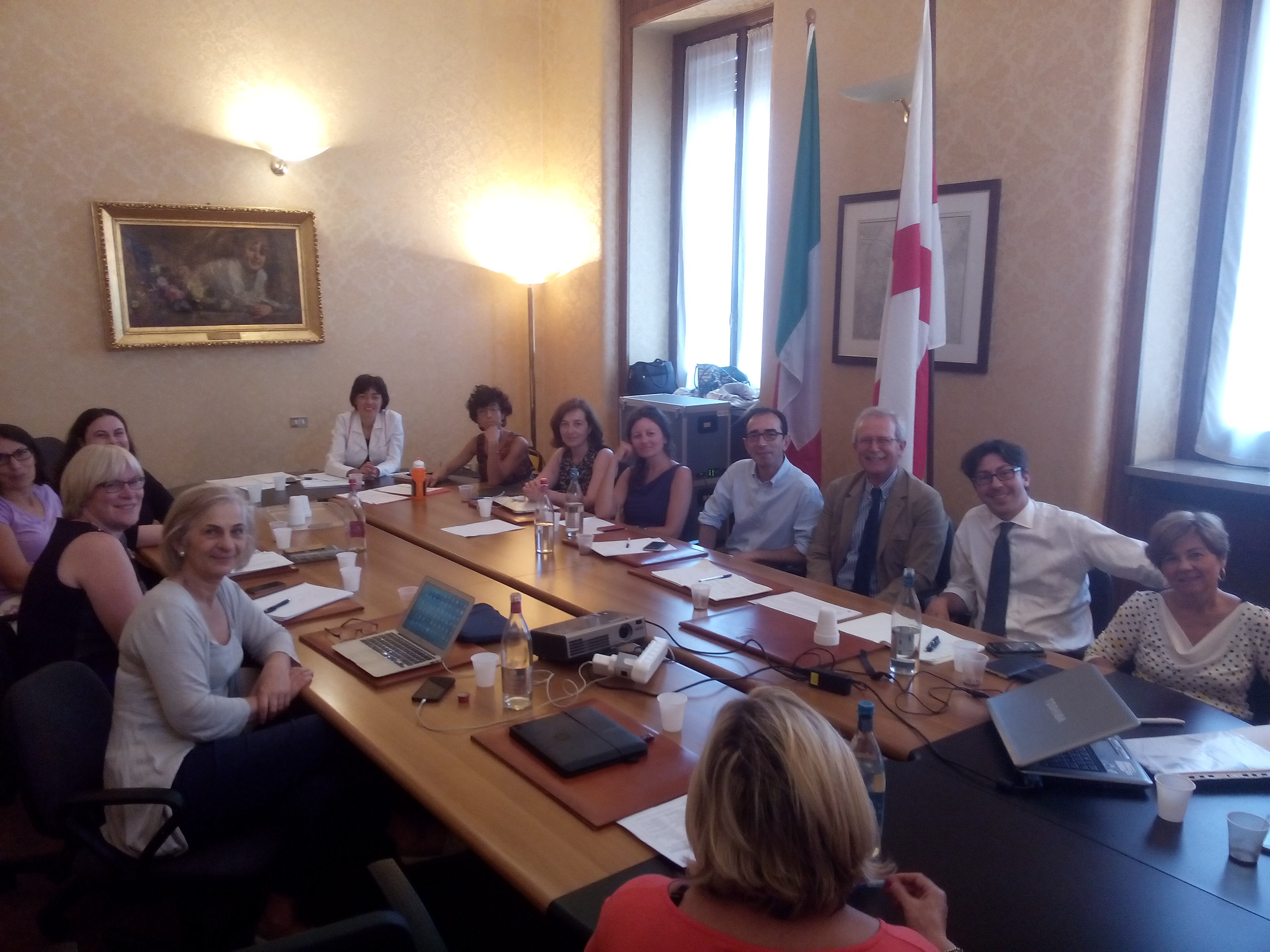
A mentoring visit of Leeds and Stockholm to Milan took place from 26 to 29 June in the framework of the Solidarity Cities Initiative. EUROCITIES responded quickly in May to the need of Milan of making progress on the area of reception of unaccompanied minors as well as education for children of families with migrant background.
- Written by solidarity
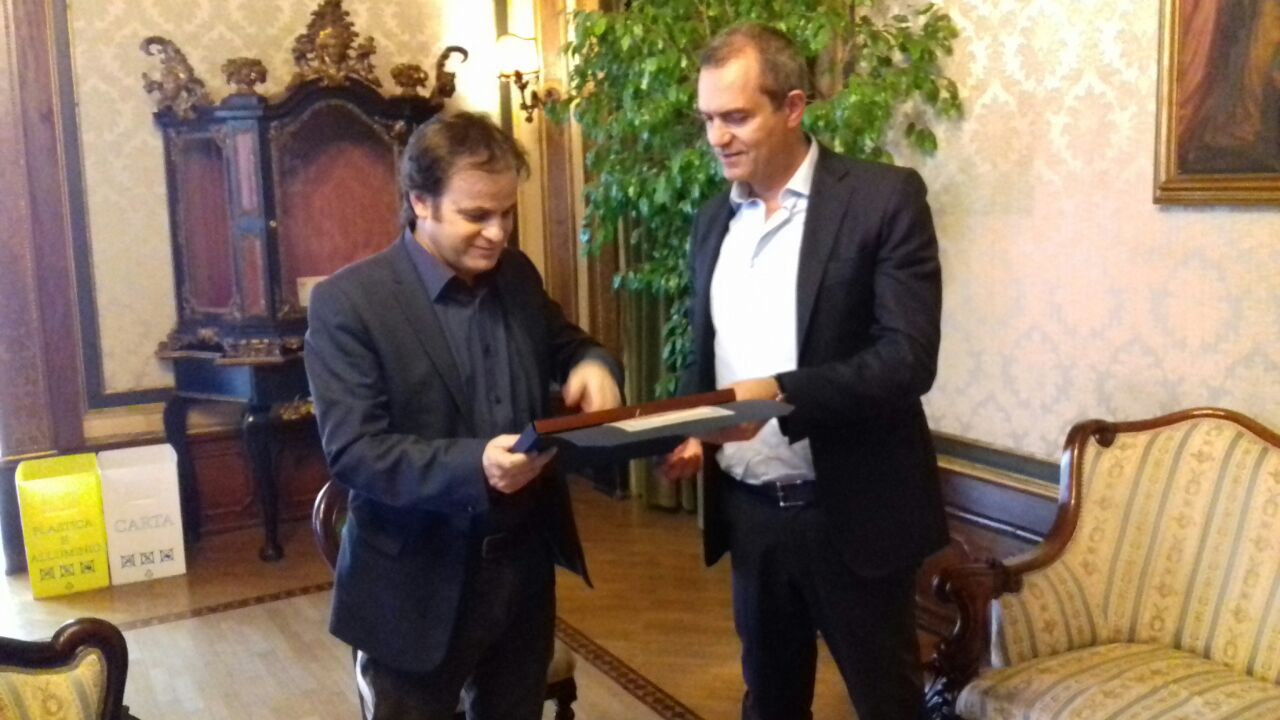
Jaume Asens, Deputy Mayor for Citizenship Rights of the Barcelona City Council, met with the Mayor of Naples, Luigi de Magistris, on the occasion of the Italian city's accession to the Solidarity Cities initiative. They explored how to increase cooperation between cities to address the refugee crisis.
- Written by solidarity
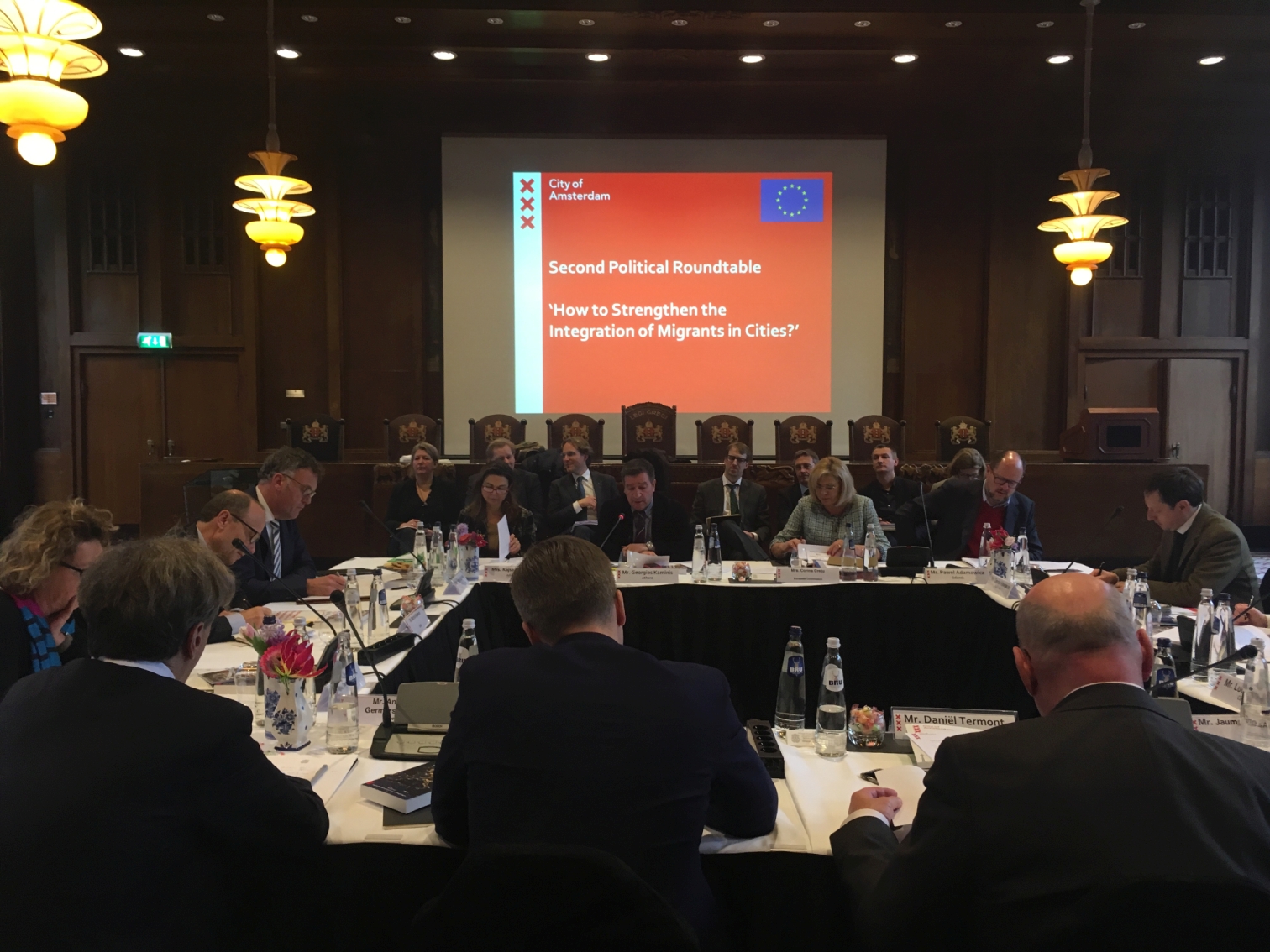
Gathered in Amsterdam on 7 February for the second edition of the political roundtable on refugees, mayors of cities belonging to the EUROCITIES network (Amsterdam, Athens, Barcelona, Berlin, Gdansk, Ghent, Riga) kept up the pressure on the EU institutions to obtain direct EU funding for cities coping with refugee reception and integration issues, while reaffirming their willingness to play a direct role in the EU’s planned relocation system
- Written by solidarity
Cities strengthen their response to the refugee situation today with the launch of Solidarity Cities in Athens. An initiative of Giorgios Kaminis, mayor of Athens, Solidarity Cities will consolidate ongoing efforts at local level to receive and integrate refugees and will reinforce these by providing a platform for cities to exchange knowledge and expertise on this highly topical issue.
The initiative was launched today in Athens during the EUROCITIES Social Affairs Forum, following a political discussion between city leaders on how cities can better work together on refugee integration and reception.
- Written by Thomas Jezequel
EUROCITIES today launches a report on how major European cities are managing the reception and integration of refugees.
The report is the result of a survey carried out among EUROCITIES members and offers new insights into the situation in 34 different cities in 17 EU member states.
- Written by eurocities.eu
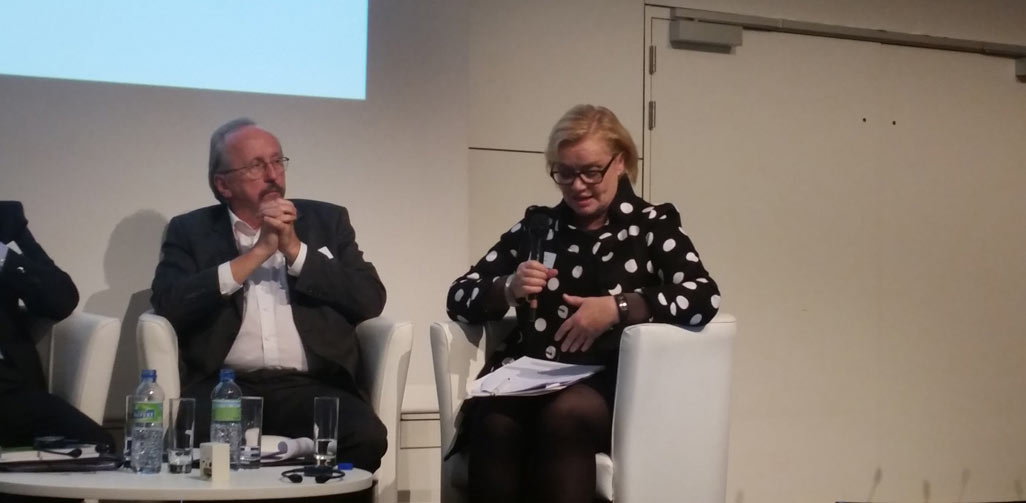
Ritva Viljanen, deputy mayor of Helsinki, called for direct access for cities to EU Asylum, Migration & Integration Funding (AMIF) during a panel discussion hosted by European Commission DG Home on 29 September.
- Written by eurocities.eu
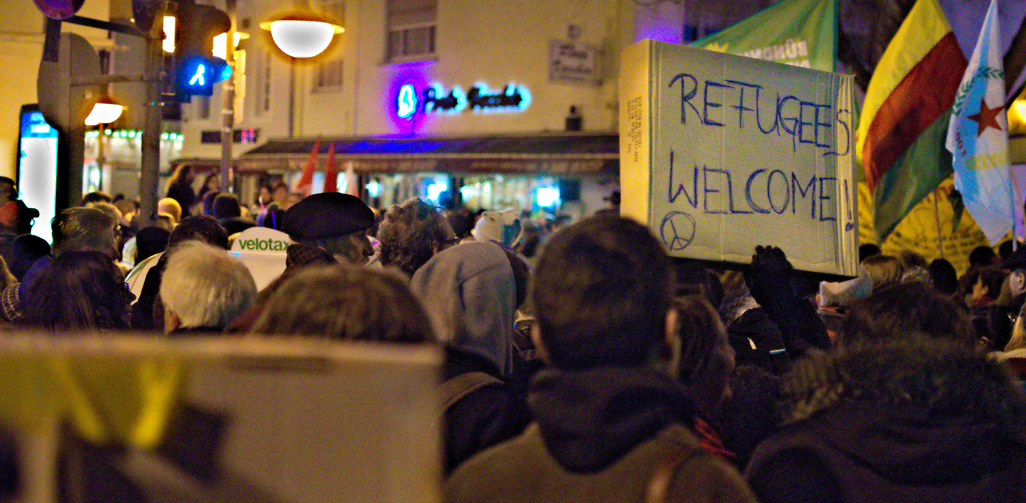
Johanna Rolland, EUROCITIES president and mayor of Nantes, explains how cities are showing leadership when it comes to welcoming refugees.
- Written by Super User
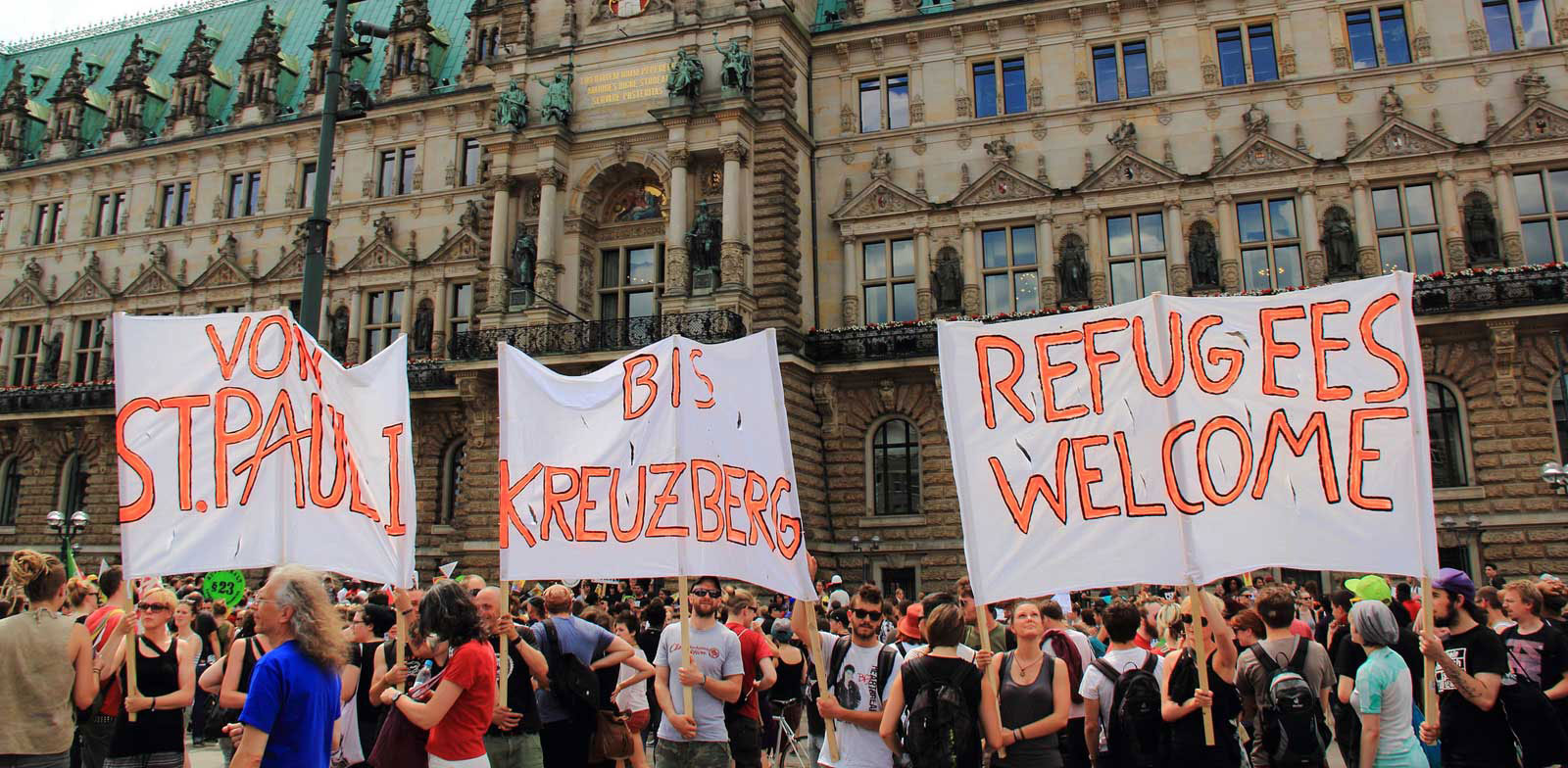
Anna Lisa Boni, EUROCITIES secretary general, explains the challenges cities face in dealing with the current asylum crisis; this article originally appeared in EurActiv.
- Written by eurocities.eu
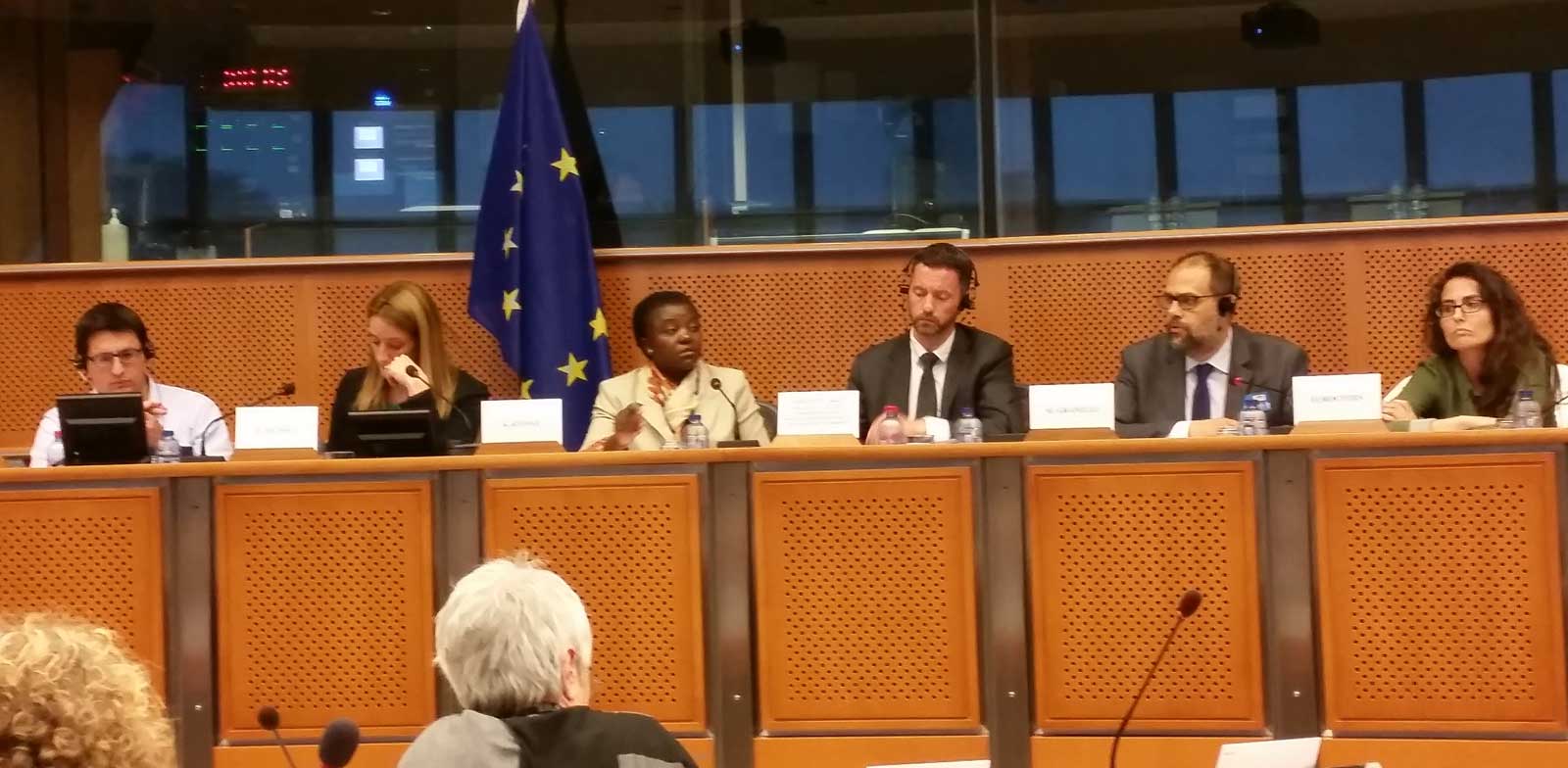
We shared our cities' experiences of dealing with asylum and migration at a LIBE committee meeting in the European Parliament.
- Written by eurocities.eu
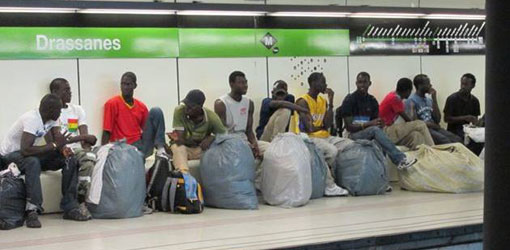
In our statement on asylum in cities, we call for a comprehensive EU migration policy that recognises the challenges faced by cities and local level solutions.
- Written by eurocities.eu
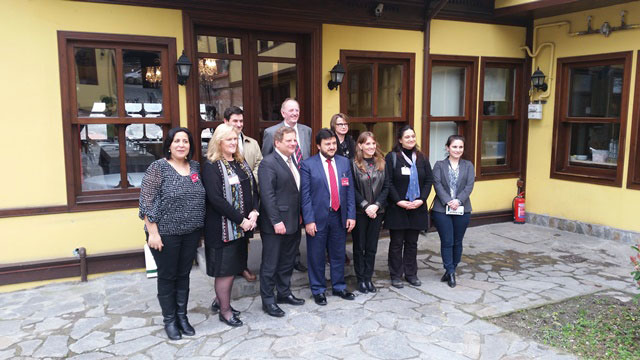
Nine local politicians met in Osmangazi on 11 March for a closed discussion on asylum and migration issues in cities.

